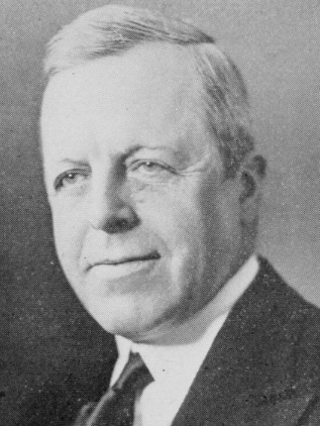External links
- Text.
| | This article related to international law is a stub. You can help Wikipedia by expanding it. |
| C51 | |
|---|---|
| ILO Convention | |
| Date of adoption | June 23, 1936 |
| Date in force | Withdrawn May 30, 2000 |
| Classification | Hours of Work |
| Subject | Working Time |
| Previous | Recruiting of Indigenous Workers Convention, 1936 (shelved) |
| Next | Holidays with Pay Convention, 1936 |
Reduction of Hours of Work (Public Works) Convention, 1936 is an International Labour Organization Convention.
It was established in 1936, with the preamble stating:
Considering that the question of the reduction of hours of work on public works undertaken or subsidised by Governments is the third item on the agenda of the Session;,...
The convention was never brought into force, and was withdrawn at the ILO General Conference May 30, 2000.
The convention was not ratified by any states.
A copyright is a type of intellectual property that gives its owner the exclusive right to copy, distribute, adapt, display, and perform a creative work, usually for a limited time. The creative work may be in a literary, artistic, educational, or musical form. Copyright is intended to protect the original expression of an idea in the form of a creative work, but not the idea itself. A copyright is subject to limitations based on public interest considerations, such as the fair use doctrine in the United States.
Labour laws are those that mediate the relationship between workers, employing entities, trade unions, and the government. Collective labour law relates to the tripartite relationship between employee, employer, and union.

The Works Progress Administration was an American New Deal agency that employed millions of jobseekers to carry out public works projects, including the construction of public buildings and roads. It was set up on May 6, 1935, by presidential order, as a key part of the Second New Deal.

Working (laboring) time is the period of time that a person spends at paid labor. Unpaid labor such as personal housework or caring for children or pets is not considered part of the working week.

The 1908 Republican National Convention was held in Chicago Coliseum, Chicago, Illinois on June 16 to June 19, 1908. It convened to nominate successors to President Theodore Roosevelt and Vice President Charles W. Fairbanks.

The 1928 Republican National Convention was held at Convention Hall in Kansas City, Missouri, from June 12 to June 15, 1928.
The eight-hour day movement was a social movement to regulate the length of a working day, preventing excesses and abuses of working time.

The Uruguay Round Agreements Act is an Act of Congress in the United States that implemented in U.S. law the Marrakesh Agreement of 1994. The Marrakesh Agreement was part of the Uruguay Round of negotiations which transformed the General Agreement on Tariffs and Trade (GATT) into the World Trade Organization (WTO). One of its effects is to give United States copyright protection to foreign works that had previously been in the public domain in the United States.
Reduction of Hours of Work Convention, 1935 (shelved) is an International Labour Organization Convention.
The Convention concerning Hours of Work on Board Ship and Manning or Hours of Work and Manning (Sea) Convention, 1936 is an International Labour Organization Convention which never entered into force. It was established in 1936, and closed for ratification on 24 February 2002, when the 1996 Convention concerning Seafarers' Hours of Work and the Manning of Ships entered into force.
Reduction of Hours of Work (Textiles) Convention, 1937 is an International Labour Organization Convention.

The Baltic Marine Environment Protection Commission is an intergovernmental organization governing the Convention on the Protection of the Marine Environment of the Baltic Sea Area. A regional sea convention and a platform for environmental policy making at the regional level, HELCOM works for the protection of the marine environment of the Baltic Sea. HELCOM consists of ten members – the nine Baltic Sea countries Denmark, Estonia, Finland, Germany, Latvia, Lithuania, Poland, Russia and Sweden, plus the European Union.

Joseph Buell Ely was an American lawyer and Democratic politician from Massachusetts. As a conservative Democrat, Ely was active in party politics from the late 1910s, helping to build, in conjunction with David I. Walsh, the Democratic coalition that would gain an enduring political ascendancy in the state. From 1931 to 1935, he served as the 52nd Governor. He was opposed to the federal expansion of the New Deal, and was a prominent intra-party voice in opposition to the policies of Franklin Delano Roosevelt. In 1944 he made a brief unsuccessful bid for the Democratic presidential nomination.
The following outline is provided as an overview of and topical guide to the United Nations:
The rule of the shorter term, also called the comparison of terms, is a provision in international copyright treaties. The provision allows that signatory countries can limit the duration of copyright they grant to foreign works under national treatment to no more than the copyright term granted in the country of origin of the work.

The Berne Convention for the Protection of Literary and Artistic Works, usually known as the Berne Convention, was an international assembly held in 1886 in the Swiss city of Bern by ten European countries with the goal to agree on a set of legal principles for the protection of original work. They drafted and adopted a multi-party contract containing agreements for a uniform, crossing border system that became known under the same name. Its rules have been updated many times since then. The treaty provides authors, musicians, poets, painters, and other creators with the means to control how their works are used, by whom, and on what terms. In some jurisdictions these type of rights are being referred to as copyright.

Bridgeman Art Library v. Corel Corp., 36 F. Supp. 2d 191, was a decision by the United States District Court for the Southern District of New York, which ruled that exact photographic copies of public domain images could not be protected by copyright in the United States because the copies lack originality. Even though accurate reproductions might require a great deal of skill, experience and effort, the key element to determine whether a work is copyrightable under US law is originality.

The Maritime Labour Convention (MLC) is an International Labour Organization (ILO) convention, number 186, established in 2006 as the fourth pillar of international maritime law and embodies "all up-to-date standards of existing international maritime labour Conventions and Recommendations, as well as the fundamental principles to be found in other international labour Conventions". The other pillars are the SOLAS, STCW and MARPOL. The treaties applies to all ships entering the harbours of parties to the treaty (port states), as well as to all ships flying the flag of state party (flag states, as of 2021: over 91 per cent).
Child labour laws are statutes placing restrictions and regulations on the work of minors.
Reduction of Hours of Work Convention may refer to: